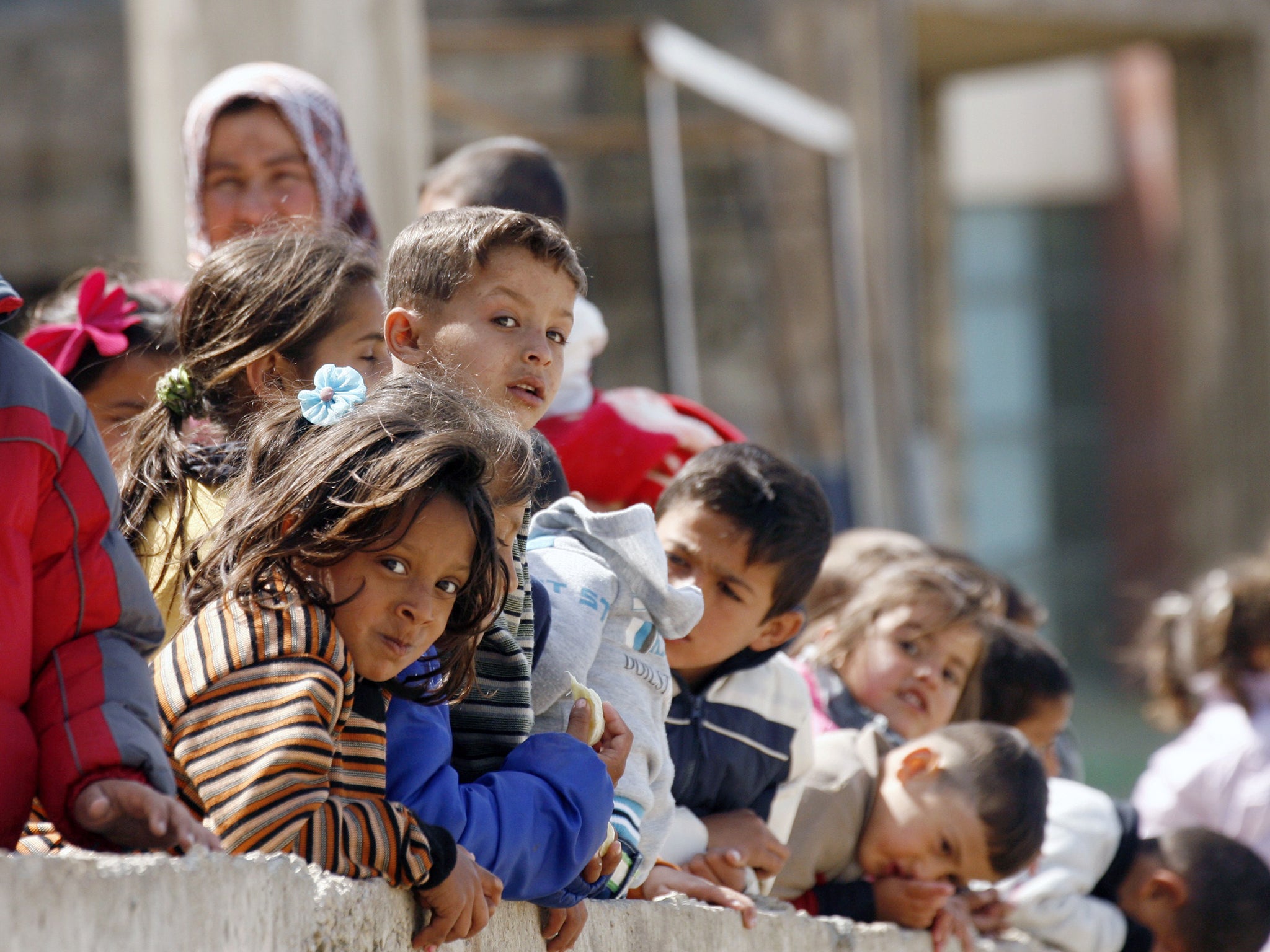Refugee crisis: How education will give Syrian children displaced by civil war a future
The lack of schooling is a factor in family decisions to embark on dangerous sea crossings

Your support helps us to tell the story
From reproductive rights to climate change to Big Tech, The Independent is on the ground when the story is developing. Whether it's investigating the financials of Elon Musk's pro-Trump PAC or producing our latest documentary, 'The A Word', which shines a light on the American women fighting for reproductive rights, we know how important it is to parse out the facts from the messaging.
At such a critical moment in US history, we need reporters on the ground. Your donation allows us to keep sending journalists to speak to both sides of the story.
The Independent is trusted by Americans across the entire political spectrum. And unlike many other quality news outlets, we choose not to lock Americans out of our reporting and analysis with paywalls. We believe quality journalism should be available to everyone, paid for by those who can afford it.
Your support makes all the difference.The civil war in Syria will soon enter its sixth year – and already six million children have been displaced from their homes, of whom two million are refugees holed up in Lebanon, Turkey and Jordan. The figure is likely to rise to 2.5 million by the year’s end.
No one can predict how long the boys and girls will be away from their homes but, even after years of war, the majority of refugee children are deprived of the basic right to go to school and are on the streets.
Unless new money for education is found at the fourth United Nations Syria Pledging Conference in London on 4 February, hundreds of thousands will go through their school-age years without ever entering a classroom.
We know that the future of the region depends on educated young people. But the evidence is that children are being forced into child labour – and girls into early marriage – and, the longer children are out of school, the less likely they are ever to return to complete their education. And we know also that it is the absence of educational opportunities in the region that is one of the most important factors in family decisions to embark on the dangerous voyages to Europe.
Only a monumental effort by public and private sectors can begin to undo the damage done to millions of children’s lives over the past five years.
So at Davos this week, two weeks before the London conference, business will be challenged on what part it can play to help one million Syrian refugee children secure the education they need in the biggest refugee crisis since 1945.
And, in a unique venture, the Global Business Coalition for Education is bringing together dozens of concerned companies ready to offer everything from books and computers and online learning facilities to help for job placement for school leavers and accelerated learning programmes for children who have been out of school for years.
Currently, humanitarian aid – which focuses on food, shelter and healthcare – offers little for education in emergencies, even when refugees have been in camps or displaced for years on end. And, sadly, at the moment, development aid is not geared to emergencies or to conflict zones. In both cases – humanitarian and development aid – the private sector role has never been formalised
This spring, the first World Humanitarian Summit will convene in Istanbul. The creation of a global humanitarian fund drawing on the widest possible set of contributors – foundations, charities, companies and governments – allied to our plan to provide education for one million Syrian refugee children this year, will write a new chapter in the history of humanitarian aid. And not before time.
Sarah Brown is president of Theirworld and chair of the Global Business Coalition for Education
Join our commenting forum
Join thought-provoking conversations, follow other Independent readers and see their replies
Comments